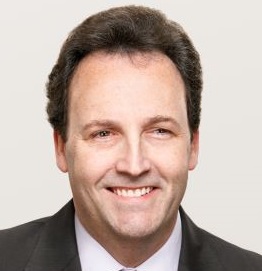Hatch-Waxman Litigation and 30-Month Stays: Multiple Stays, Late-Listed Patents, and More

Welcome! Strafford is now BARBRI! The expert courses you know from the trusted global leader in legal education.
Course Details
- smart_display Format
On-Demand
- signal_cellular_alt Difficulty Level
- work Practice Area
Patent
- event Date
Thursday, October 29, 2020
- schedule Time
1:00 p.m. ET./10:00 a.m. PT
- timer Program Length
90 minutes
-
This 90-minute webinar is eligible in most states for 1.5 CLE credits.
-
Live Online
On Demand
This CLE course will guide patent counsel on the 30-month stay in Hatch-Waxman Act litigation. The panel will discuss the circumstances where the FDA will grant a stay--and those where it will not. The panel will discuss when a stay may extend beyond 30 months and when it may be shortened.
Faculty

Dr. Feldstein focuses on U.S. district court litigation, primarily concerning the enforcement of U.S. patent rights and trade secret issues, and post-grant trial proceedings at the USPTO, including inter partes review (IPR) and post grant review (PGR). He maintains an active patent prosecution practice, preparing and prosecuting U.S. patent applications on behalf of domestic and foreign clients. He also provides opinions and strategic guidance to clients on infringement, validity, enforceability, and clearance matters. His practice encompasses a range of technologies, including pharmaceuticals, biochemistry, polymers, small molecule chemistry, optics, and medical and analytic devices.

Dr. Rudolph has successfully litigated complex Hatch-Waxman Paragraph IV Abbreviated New Drug Application and biotechnology cases over the past twenty years. She serves as lead counsel in pharmaceutical and biotechnology disputes and has extensive litigation experience in federal courts. She has argued before the U.S. Court of Appeals for the Federal Circuit and authored an amicus brief submitted to the U.S. Supreme Court in a landmark biotechnology patent case. She devises strategies to protect clients' valuable intellectual property involving sophisticated technologies in the pharmaceutical and biotechnology industries.

Dr. Weingarten has a diverse intellectual property practice focusing on patent litigation before U.S. district courts and the U.S. International Trade Commission (ITC), post-grant trial proceedings at the U.S. Patent and Trademark Office (USPTO), prosecution, and strategic portfolio management. He also drafts opinions on patent infringement, validity, and enforceability, and prepares intellectual property agreements, such as those relating to license and supply. In addition, he prepares and prosecutes U.S. patent applications on behalf of domestic and foreign clients.
Description
Under the Hatch-Waxman Act, the owner of an Orange Book-listed patent covering an innovative pharmaceutical product is entitled to a 30-month stay if it sues a generic drug applicant within 45 days of receiving a Paragraph IV notice letter. When the stay is in place, the FDA will not grant final approval of the generic product.
While this procedure seems relatively straightforward, a surprising number of questions regarding 30-month stays can and do arise. What are the requirements for filing suit to trigger a stay? Can pharmaceutical companies get multiple stays, for example, by listing multiple patents in the Orange Book? Will reissue of the patent during litigation or challenges at the USPTO affect the stay?
Listen as our authoritative panel explains the 30-month stay in Hatch-Waxman Act litigation. The panel will discuss when the FDA will grant a stay--and when it will not. The panel will review when a stay may extend beyond 30 months and when it may be shortened.
Outline
- Triggers
- Requirements
- Defective complaint
- Multiple stays
- Potential impacts
- Additional listing
- Paragraph III or IV certifications
- Change in product
- Expiration with pending litigation
- Reissue during litigation
- Challenges at USPTO
Benefits
The panel will review these and other crucial issues:
- Can a "defective" complaint trigger the stay?
- Can a late-listed patent give rise to a stay?
- Is a generic drug applicant subject to a second 30-month stay if it converts a Paragraph III certification to a second Paragraph IV?
- What is the impact of the stay expiring while the litigation is pending?
- What is the impact of the litigation ending while the stay is in place?
- What impact does a USPTO decision or pending USPTO proceedings have on a stay?
Unlimited access to premium CLE courses:
- Annual access
- Available live and on-demand
- Best for attorneys and legal professionals
Unlimited access to premium CPE courses.:
- Annual access
- Available live and on-demand
- Best for CPAs and tax professionals
Unlimited access to premium CLE, CPE, Professional Skills and Practice-Ready courses.:
- Annual access
- Available live and on-demand
- Best for legal, accounting, and tax professionals
Unlimited access to Professional Skills and Practice-Ready courses:
- Annual access
- Available on-demand
- Best for new attorneys
